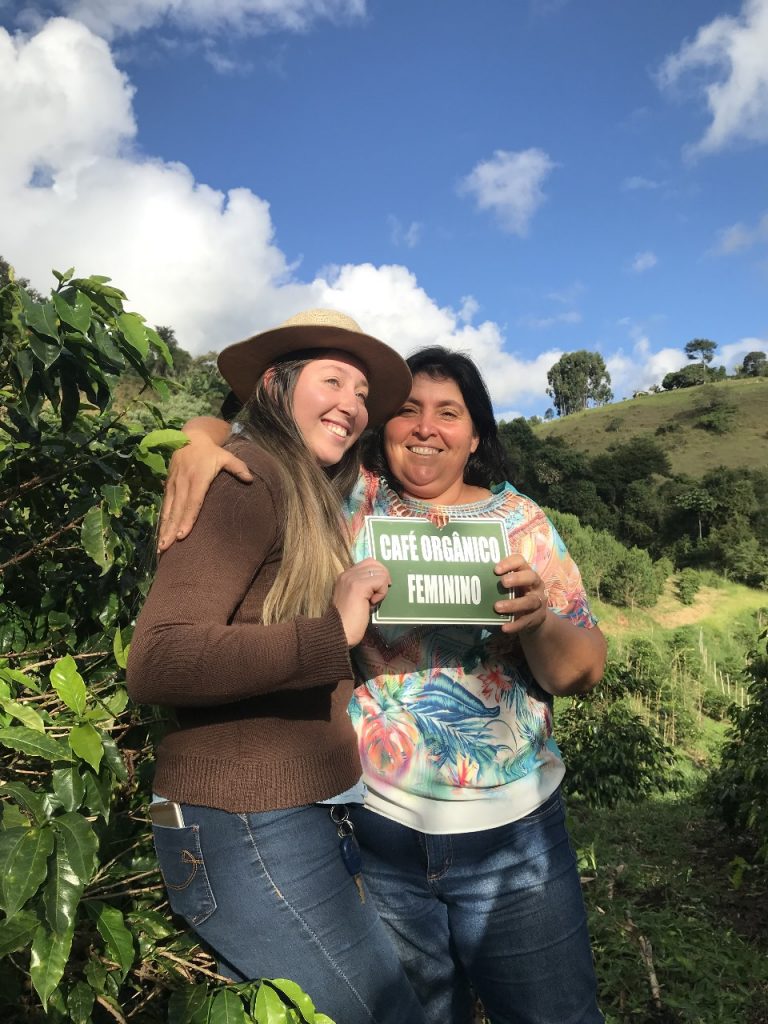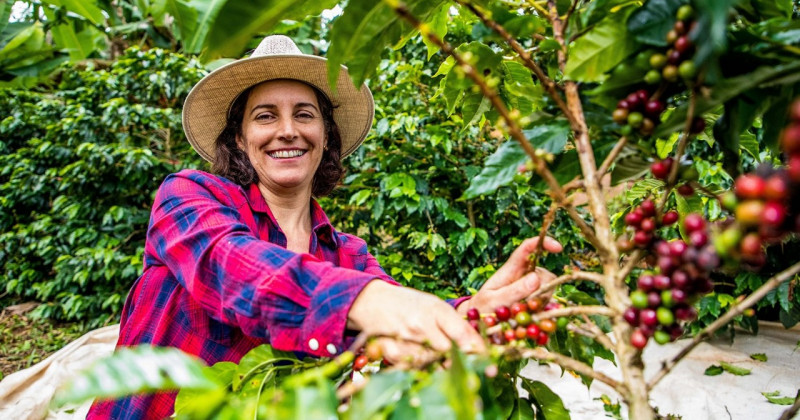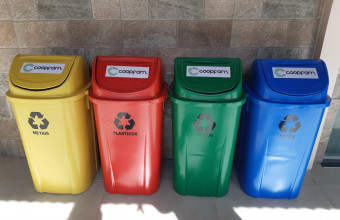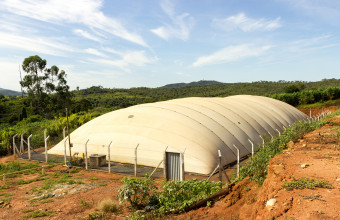Empowering women in rural areas is a significant challenge for agricultural cooperatives. According to data from the Anuário do Cooperativismo Brasileiro for 2022 (in English, Brazilian Cooperative Yearbook), women represent only 16% of the overall membership in agricultural cooperatives. Among the leaders, the situation is slightly better, but not much, with women accounting for 22% of leadership roles.
Coopfam (Cooperativa dos Agricultores Familiares de Poço Fundo e Região), a cooperative of family farmers from the Brazilian state of Minas Gerais, which operates in the coffee sector, is leading a movement for change and inclusion of women in agriculture with a project named Women Organized in Search of Equality (MOBI, for its acronym in Portuguese).
MOBI was established in 2006 to address an issue identified in the early years of the cooperative’s operation: rural female workers collaborated with their spouses in coffee production but couldn’t enjoy various benefits due to a lack of documentation for their activities.
There was an incident where a farmer’s wife became a widow and needed to regularize her documents to join the cooperative and continue the family business. This led to a wave of enrollment by women involved in coffee production, and from that point on, the number of women within the cooperative grew, and the group was named Women Organized in Search of Equality – MOBI.
Fostering Female Leadership
According to Renata de Fátima Pires Tavares, a specialist in the cooperative’s socio-environmental department, “the cooperative has a group composed exclusively of women, discussing programs for rural, personal, and professional development. This group formed current and past leadership, making it a significant support for inspiring women to embrace various aspects of cooperativism and participate in the production process on their farms at all stages”.
Through this group, the cooperative develops specific projects for gender equality, female leadership within agriculture, and also in various spaces in our society.
A highly successful initiative in this regard is the creation of a specific line of women’s coffee, which values the work of women in agriculture, providing financial and social empowerment for the cooperative’s female producers. These coffees were served during the 2014 FIFA World Cup hosted in Brazil and the 2016 Rio de Janeiro Olympics.
“Today, we have a larger number of women in all areas related to our cooperative,” says Fátima. She believes that by giving prominence to women, Coopfam engages families in cooperativism, positively impacting the family succession process on the properties.
“Socially, these issues are of great importance because we are working with minority groups and empowering rural women to achieve the dreams that each of them envisions,” the specialist adds. The cooperative has 523 members, of which 89 are women.
In 2018, the women’s coffee produced by MOBI received an honorable mention in the “Saberes e Sabores” competition (in English, “Knowledge and Flavour”) organized by the UN. In the following year, Vânia Lúcia Pereira da Silva took office as the first female president of Coopfam.

Cooperative Women
“We see the pride that our female cooperators feel when producing a coffee that takes into consideration their participation in the process. This is undoubtedly our greatest achievement,” says Fátima when discussing MOBI’s success.
She explains that, in the past, women often identified themselves only as helpers to their husbands in agricultural activities. Consequently, they were excluded from the production process and played a limited role in the financial life of the properties. Women saw themselves more as housewives rather than professionals in agriculture.
Even women who were leading their property businesses did not consider themselves as entrepreneurs and coffee producers. “Low self-esteem caused by a society that oppresses the dreams and desires of women, especially rural women, gave way to a voice that only rural women can articulate,” Fátima says.
“Breaking the chains of patriarchy, challenging the stigma surrounding rural women, and advocating for space and visibility for work in rural areas are the focuses of our work, aimed at the development of all our cooperators. Besides, we also look at the financial aspect, which is no less important, as financially empowering women is a basic criterion for progress in all developments that humanity can pursue,” Fátima concludes.





